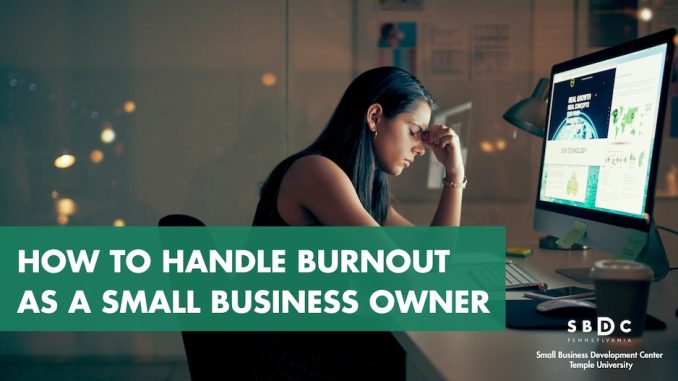
For many entrepreneurs and small business owners, the initial spark of passion and boundless energy that ignites their ventures often gives way to an insidious creeping exhaustion known as business burnout. It’s more than just feeling tired after a long day; burnout manifests as a profound state of physical, emotional, and mental depletion, often accompanied by feelings of cynicism, detachment, and a reduced sense of accomplishment. This pervasive issue can derail even the most promising businesses and, more critically, take a severe toll on the individual behind the enterprise. Recognizing the symptoms early and proactively addressing them is not a luxury, but a necessity for sustained success and well-being.
The insidious nature of business burnout lies in its gradual onset. Initially, it might present as a persistent fatigue that sleep doesn’t seem to alleviate. This can progress to difficulty concentrating, irritability, and a diminished enthusiasm for tasks that once brought immense satisfaction. Eventually, individuals might experience a complete lack of motivation, feelings of inadequacy, and a cynical outlook towards their work and even their customers. This is often compounded by the unique pressures faced by business owners: the weight of financial responsibility, the constant need to innovate, the challenges of managing staff, and the ever-present feeling that “the buck stops here.” Unlike employees who can clock out and disengage, business owners often find their work intertwined with their very identity, making separation and recovery exceptionally difficult.
One of the most critical steps in combating burnout is acknowledging its presence and giving yourself permission to address it. Many entrepreneurs wear their long hours and relentless dedication as a badge of honor, fearing that admitting to burnout signifies weakness or a lack of commitment. This mindset is dangerous. True strength lies in recognizing limitations and seeking sustainable solutions. Begin by conducting an honest self-assessment. Are you consistently working 70+ hours a week? Is your personal life suffering? Do you dread starting your workday? These are red flags that should not be ignored.
Once acknowledged, a crucial countermeasure is to establish clear boundaries between your work and personal life. For many business owners, especially those working from home, this distinction blurs, leading to a feeling of being “always on.” Implement strict “no-work zones,” both physically and temporally. This might mean closing your office door at a set time each evening, avoiding emails after a certain hour, or dedicating weekends entirely to non-work activities. Even if it feels counterintuitive when deadlines loom, creating this separation is vital for mental decompression and allows your brain to shift gears, fostering creativity and fresh perspectives when you return to work.
Delegation, while often challenging for small business owners accustomed to wearing every hat, is an incredibly powerful tool against burnout. The inability or unwillingness to delegate tasks not only leads to overwhelming workloads but also stunts the growth of your team and limits your business’s scalability. Identify tasks that can be entrusted to others, whether it’s an employee, a freelancer, or a virtual assistant. Start small, perhaps with administrative duties, and gradually build trust in your team’s capabilities. Remember, delegating isn’t about giving up control; it’s about empowering others and freeing up your own time to focus on strategic, high-impact activities that truly move the needle for your business.
Prioritizing self-care is another non-negotiable element in the fight against burnout. This isn’t about indulgent spa days (though those can certainly help!), but about consistently integrating healthy habits into your daily routine. Regular physical activity, even short walks, can significantly reduce stress and boost mood. A balanced diet provides the necessary fuel for both mind and body. Crucially, ensuring adequate sleep is paramount; chronic sleep deprivation is a direct pathway to burnout. Beyond the physical, incorporate activities that bring you joy and help you relax, whether it’s reading, pursuing a hobby, spending time in nature, or connecting with loved ones. These non-work pursuits provide essential mental breaks and recharge your emotional reserves.
Re-evaluating your business model and processes can also uncover hidden sources of stress and inefficiency. Are there tasks that can be automated through technology? Can you streamline your customer onboarding process? Is your marketing strategy delivering results efficiently, or is it a constant drain on your time and resources? Sometimes, burnout is a symptom of an unsustainable operational structure. Taking a step back to identify and rectify these systemic issues can lead to long-term relief and improved business performance. This might even involve saying “no” to opportunities that don’t align with your core strengths or that would overextend your resources, a difficult but often necessary decision.
Finally, consider seeking external support. This could come in various forms. Connecting with a mentor or joining an entrepreneur’s peer group can provide a valuable sounding board and a sense of shared experience, reminding you that you’re not alone in your struggles. A business coach can offer objective insights, help you identify blind spots, and develop actionable strategies. In more severe cases, or if burnout is accompanied by persistent feelings of anxiety or depression, consulting a mental health professional is a vital step. There’s no shame in seeking help; indeed, it’s a sign of self-awareness and a commitment to both your personal and professional longevity.
In essence, dealing with business burnout is about shifting from a reactive stance to a proactive one. It requires a fundamental shift in perspective: from viewing exhaustion as a badge of honor to seeing it as a critical warning sign. By setting boundaries, delegating effectively, prioritizing self-care, optimizing operations, and seeking support when needed, entrepreneurs can not only recover from burnout but also build more sustainable, resilient, and ultimately, more successful businesses that thrive without sacrificing their own well-being. It’s an investment not just in your company, but in yourself.